#Famous saints quotes
Explore tagged Tumblr posts
Text
Love God, and Do Whatever You Please
St. Augustine, one of the most influential theologians in the history of the Church, left us with a profound and often misunderstood quote: “Love God, and do whatever you please.” At first glance, this statement might seem to promote a life of self-indulgence and disregard for God’s commandments. However, when we delve deeper into the context and true meaning behind Augustine’s words, we…

View On WordPress
#catholic blog#Faith blog#Famous Christian quotes#Famous saints quotes#Love God#St. Augustine#Surrender to God
0 notes
Text
Some enclosed women became famous scholars, musicians, theologians, mystics, philosophers or saints.
"Normal Women: 900 Years of Making History" - Philippa Gregory
#book quote#normal women#philippa gregory#nonfiction#nun#famous#scholar#musician#theologian#mystic#philosopher#saint
2 notes
·
View notes
Text

#st. thomas aquinas#st. thomas church#hearts#quotes#catholic saints#traditional catholic#roman catholicism#roman catholic#sspx#tridentine#thomas aquinas art#thomas aquinas#aquinas#saints#famous quotes#inspiring quotes#inspirational quotes#original art#original content#original post#artists on tumblr#fear#humans#emotion#poetry#philosophy#gold#church fathers#doctor of the church#cath
5 notes
·
View notes
Text
Cindy Lou Who? || F1/F2


type :: angst
tw/cw :: cheating (all), death (pepe)
contains :: carlos, charles, lando, oscar, ollie, paul, pepe, luke
CONTEXT :: Singer!reader releases "cindy lou who" which exposes how the drivers cheated on her, making the drivers the most hated person on the internet - PART TWO SOON :D
xmas celly here! || f1 masterlist || f2 masterlist


Carlos Sainz | 55
carlossainz55: blue suit and eyes all on me.
→ user 01: OH THIS IS FUCKING EVIL...
⎯→ user 02: the fact (y/n) faced so much fucking racism in the f1 community only for him to get with a white girl... it's giving robert pattinson...
→ user 03: carlos sainz leaving THE FUCKING (Y/N) for the same ex he claimed was toxic???? ummmm
→ user 04: reminder to stream (y/n)'s song 😜😜😜 it's #3 on billboard 100 rn
→ rebecca.donaldson: guess i make you happy like someone couldn't do!!! 😉
⎯→ user 05: quoting her fucking song is so rude and insane. may the worse come to you...
⎯→ user 06: i can't even imagine the rage and sadness is going through and you're fucking laughing at her? THEY COULD NEVER MAKE ME LIKE YOU

Charles Leclerc | 16
f1.gossip : After (Y/N) released "cindy lou who", Alexandra Saint Mleux was seen in the paddock again with Charles and the wags. Fans were blasting (Y/N)'s song whenever they spotted Alex, resulting in her leaving early.
→ user 01: so he cheated on charlotte AND (y/n) for alex??? how strong is her hold on this man
⎯→ user 02: she gotta have some blackmail or smth
→ user 03: the fact that all the wags are hugging... except alex... yikesss smth def happened
⎯→ user 04: even jade isn't looking at her...
→ user 05: leaving a fucking MULTI-GRAMMY WINNING SINGER for your ex is fucking insane
→ user 06: MAY HE CRASH IN MONACO, MONZA, SILVERSTONE, AND MORE!!!
⎯→ user 07: MAY HIS ENGINE FART!!! FUCK CHARLES OMFG
→ user 08: SHOUT OUT TO THE FANS THAT BLASTED (Y/N)'S SONG IN HER EAR!!!!!

Lando Norris | 04
landonorris : the happiest i've ever been. happy 1 year love
→ user 01: wait wait wait ONE FUCKING YEAR????
⎯→ user 02: didn't he just break up with (y/n) like two months ago...
⎯→ user 03: so he cheated on THE (Y/N) (L/N) FOR OVER 8 MONTHS?????
→ user 04: i thought you were one of the good ones lando :/
→ user 05: even crazier is that oscar, max, AND carlos haven't comment when they used to comment on his posts with (y/n) 24/7
→ user 06: on the bright side... the album will go crazy???
⎯→ yourusername: i guess el oh el
⎯→ user 07: oh bby i'm so sorry :(

Oscar Piastri | 81
f1.gossip : After soft-launching for months on her instagram stories, Versace model Ashlee Collins was seen in the paddock with Oscar Piastri - Confirming that (Y/N) and Oscar are broken up. Goodbye to one of the best WAGs :( We'll miss you.
→ user 01: you know it's bad when even the f1 gossip account is sad
⎯→ user 02: she literally had no drama, was super sweet to fans, AND famous too
→ user 03: oh so THIS is who "cindy lou who" is about???
⎯→ user 04: she's stunning but being a homewrecker instantly makes her ugly in my eyes :/
→ user 05: leaving (y/n), a girl SPONSERED BY VERSACE, for a fucking model under the same brand is fucking insane. oscar lost my respect
⎯→ user 06: that probs means that oscar met this girl while (y/n) was working which is even worse
→ lily.zienmer: sending my prayers for her
⎯→ user 07: OO LILY?!!!??!??
⎯→ user 08: for ashlee or (y/n)?
⎯→ lily.zienmer: both

Oliver Bearman | 87
olliebearman: got rid of some dead weight, faster than every before.
→ user 01: oh so HE'S calling THE (Y/N), PRINCESS OF POP, a fucking DEAD WEIGHT???
⎯→ user 02: The balls on this man is fucking INSANE.
⎯→ user 03: NEUTER HIS ASS!!!!
→ user 04: she's pretty, but is she an award winning, billboard chart topper, AND model??? didn't think so
→ user 05: so half of his fanbase comes from (y/n)... he cheats on her... and then calls her a dead weight?? oh he's fucking dead
⎯→ user 06: might buy tickets just to throw shit at his car

Paul Aron | 17
addison.lillies : i guess i do look like cindy lou LOL anyways, hard launch?
→ user 01: oh... this isn't....
⎯→ user 02: she really thought she ate...
→ user 03: ur hard launch isn't even a whole photo of you two together, sad
⎯→ user 04: getting flashbacks to paul literally posting highlights and posts DEDICATED to just showing off (y/n) but he won't even like this girl's post...
→ user 05: erm... someone didn't understand the meaning of the song
→ paularon: pick better photos next time 😂😅
⎯→ user 06: OH... EMBARRASSING....
⎯→ user 07: was gonna get ur merch but now :/ mannn idk
⎯→ user 08: we expected more from you paul :( we really did

Pepe Marti | 21
f1.gossip : pepe marti was spotted at a bar with his childhood friend, alana. the two were described to be touchy, cuddling, and leaving the bar together in pepe's car while drunk. guess this is who "cindy lou who" is about... sending love to (y/n)
→ user 01: oh FUUUCCKKKKK no.
⎯→ user 02: didn't she just post a story about her aunt dying...
⎯→ user 03: i'm praying for her :( poor (y/n)
→ yourusername: 😀 i mean i always knew but damn.
⎯→ user 04: oh (y/n) :( im so sorry girlie
⎯→ user 05: the most beautiful, funniest, talented, and literal GRAMMY winner getting cheated on by a fucking f2 driver is insane. keep ur chin up girl
→ user 06: i always knew it was weird that he had a girl best friend... feel so bad for (y/n)
#f1#f2#formula 1#formula 2#f1 x reader#f2 x reader#carlos sainz x reader#charles leclerc x reader#lando norris x reader#oscar piastri x reader#ollie bearman x reader#oliver bearman x reader#paul aron x reader#pepe marti x reader#xmas celly!
467 notes
·
View notes
Text
fun musical bit about this scene!:
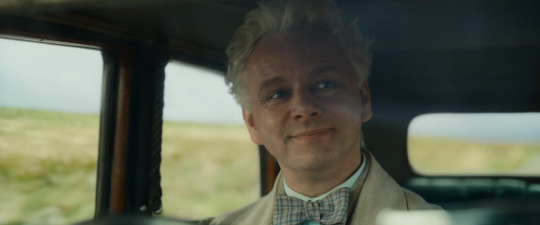
the piece that the car is playing (the "classical music that stays classical music") is a tone poem, saint-saëns' danse macabre. it's a super famous piece that you've probably heard before and is associated with all things spooky. but it's not just spooky bc it sounds spooky: it's spooky bc it tells a story! a tone poem is a piece of music evokes a poem, short story, landscape, etc. in short, it's a piece of music that's describing or outlining something.
danse macabre tells the story of death, who every year on the stroke of midnight on halloween plays his fiddle to raise the dead. the dead dance for him until the following dawn, where they return to their graves until the next year. (musically it does a lot of cool things to reflect this: there's 12 notes at the beginning representing the 12 strokes of midnight, and the frequent use of a specific musical interval called the tritone. in the medieval period the tritone was also called diabolus in musica, literally meaning "the devil in music" bc of how dissonant it sounded to listeners at the time. it also quotes the dies irae chant as well!)
so the fact that it's what the car chose to play is SUPER cute. bc it's classical (technically it's from the romantic period, but w/e), like aziraphale wants, but it's also reminiscent of crowley. bc i bet the car knows just how much aziraphale loves crowley, too. it's a really subtle nudge that the car knows both of them and it's like the car is finding a musical middle for them both, almost.
it's also a subtly brilliant choice bc in the flashback prior, aziraphale said that crowley asked to meet aziraphale in the graveyard at midnight. just like death met the dead on halloween.
#it would be kind of sick if david arnold used tritones to envoke the devil next season tbh it's like. cheesy but would be deliciously nerdy#good omens#good omens meta#music things#go2 spoilers#neil gaiman#thoughts
3K notes
·
View notes
Text
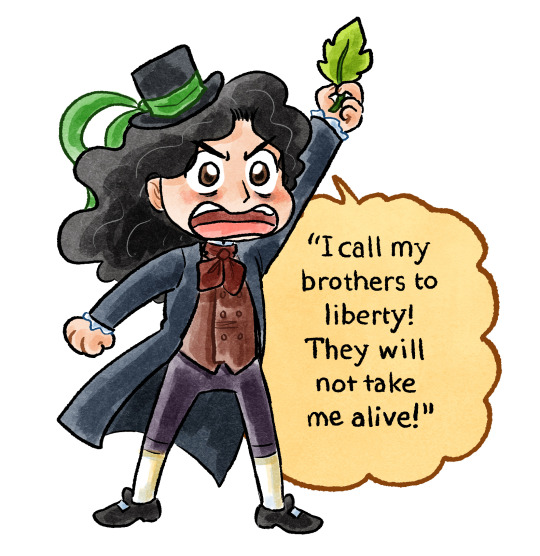
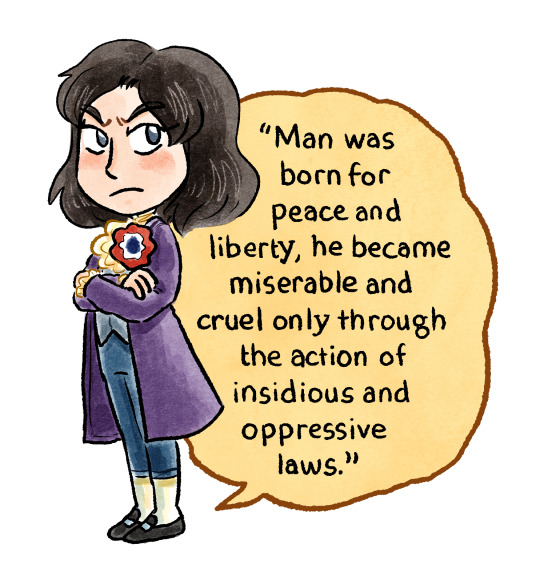

Some little doodles and inspirational quotes from Camille Desmoulins, Louis Antoine Saint-Just, and Maximilien Robespierre 💖
I've made these 3 cos I'm making some stickers for a comic convention thats very soon, and did the most 'famous' people for starters/who ppl following me might know from my comic :3
But when I have free time I'm definately gonna make some of lesser discussed but equally inspiring revolutionaries~
#It would be awesome to make some of the women and black ppl involved in Frev#I think for ppl not into Frev who are attending cons#sharing such people would be a fun inspiring insight into the history#but I want to do my research first on such people before I make stickers of them#to get their personalities right and find cool quotes~#frev#french revolution#frev art#camille desmoulins#louis antoine saint just#maximilien robespierre#saint just#robespierre
275 notes
·
View notes
Text


This is me trying to bypass Tumblr censorship, attempt 1
Just in case, the full fanart is on ao3
Details under the cut! (It's a bit long, I'm warning you)
Here's the frankly too long explaination.
I basically crammed in this drawing all my favourite motifs and all of my studies.
The tattoo on Sam's back is something I designed myself and represents Mater Dolorosa (Our Lady of Sorrows or Madonna Addolorata) with a stanza from the prayer "Stabat Mater" that goes as folows - "Through her soul, of joy bereaved, bowed with anguish, deeply grieved, now at length the sword hath passed."
Then we have Saint Michael slaughtering the Devil on Dean's arm. This is a mesh up of different stock images; usually Saint Michael stands over a serpent not a dragon and has a sword, not a halberd, those come from Saint George (Patron Saint of soldiers, so not a random choice)


Then there's the scripts. (Open the first pic)


The roman numbers on Dean's collarbone: II.V.XCIII = 2.5.83, Sam's date of birth.
The matching latin tattoos on their bicepts: The whole quote actually is "Nec tecum, nec sine te vivere possum" by Ovidius, which means "I can't live with you nor without you" and I thought of splitting it like that because I think it sums up their relationship pretty well. They can't be together, especially Sam imo (forever the runaway), because it's basically self-destructive, but being apart maybe is even worse (suicidal Dean anyone?).
A mandala with a mantra on Sam's tigh: गते गते पारगते पारसंगते बोधि स्वाहा . The Devanāgarī, for those unfamiliar, is a South Asian writing system. Here we have the mantra that closes the Heart Sutra "Gone, gone, gone to the other shore, Awakening, Svaha." (Svaha is the Hindu goddess of sacrifices; in a Buddhist context the term is used as denoument for mantras, espicially duing rites and offerings).
The characters on Dean's bicept, next to Saint Michael: 天罰. Those are technically Hanja aka Traditional Chinese characters used to write Korean (mostly because I first encountered this word in my korean phylology studies and that's how I know it), but they mean the same thing in Korean, Chinese and Japanese, "Divine Punishment", sooo - the only difference is the ponunciation. Korean: 천벌 (cheonbeol) Japanese: てんばつ (tenbatsu) Chinese: 天罚 (tiān fá).
Lastly, on Dean ribs, say hi to my bestie Hammurabi and his famous Code: here we have the Law 196 which actually even rocks know about; An eye for an eye. The full text says: "If a man has blinded the eye of another man, his eye will be blinded." Can't really offer you a transcript but if you're curious here's the transliteration:
" šum-ma a-wi-lum i-in DUMU a-wi-lim úḫ-tap-pí-id i-in-šu ú-ḫa-ap-pa-du " There's this really neat website here that is a digital version of the whole code and it's also my source.
#and I'm also insane#but I guess we alredy got that down with the whole supernatural deal#they already took it down once urgh#the symbols on his abdomen come from the show#when they got x rays after castiel imprinted a sigil on their ribcages#trans!dean#dean winchester#sam winchester#wincest#spn#supernatural#🐭#tattoos
326 notes
·
View notes
Text
Crowley admitted his feelings in Season 1
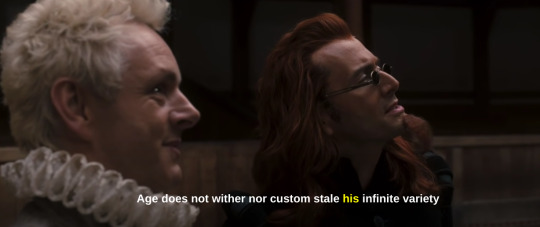
This specific quote is in reference to Act II, Scene 2 of Shakespeare's play "Antony and Cleopatra." Which canonically had not even been written yet in the series, which IMPLIES that when Shakespeare heard Crowley's words, he interpreted them as what they truly meant and transitioned them into the play. So basically Crowley has been absolutely besotted by Aziraphale from the beginning and Shakespeare agreed so much he put it in one of the most famous romantic plays of all time.
The original quote by Shakespeare read as follows:
“Never; he will not: Age cannot wither her, nor custom stale Her infinite variety;”
This quote is spoken in the play when a follower of Mark Antony describes the appearance of Cleopatra, Queen of Egypt, as she rode her barge down the river Cydnus; and how Mark Antony first lays eyes on her then immediately falls head-over-heels in love with her. "Age does not wither her" means that her beauty and allure do not diminish with the passage of time. It implies that as she ages, she remains just as attractive and enchanting as ever. "Nor custom stale her infinite variety": Here, "custom" refers to familiarity or routine. The quote suggests that even familiarity or habit does not make Cleopatra's qualities or personality seem boring or less interesting. "Infinite Variety" implies that she possesses an inexhaustible range of qualities, moods, and aspects that keep her intriguing and unpredictable---Sound like someone familiar?
Now keep in mind that when Crowley said it, It was never originally about Cleopatra
Crowley said “Age does wither nor custom stale HIS infinite variety” because AZIRIPHALE is the subject.
Crowley has admitted to being captivated by Aziraphale since he first laid eyes on him; since the first ever rainfall. Through thousands of years, Aziraphale has–quite literally never aged nor withered but–remained a consistent and magnetic presence in Crowley's life; Aziraphale company never stales because he is infinite variety, the angel with 100 contradictions, who gave away their sword without hesitation and rebelled against heaven beside Crowley; who keeps surprising him at every turn. Aziraphale himself bends the effects of time and routine because no matter how many years pass Crowley will always find him as gorgeous and fascinating as he did before the light was even born.
Aziraphale obviously doesn't really understand Shakespeare or the depth of poetry at this time, (as interpreted by his reactions to the play) and Crowley realizes this and grasps the moment to confess his feelings knowing that Aziraphale likely would not look too deep past it, you can see the shift in him when he recognizes the opportunity and the sudden morose tone he has when saying it to no one in particular.

The Good Omens writers are absolute saints, nothing they do is lazy in the least and I am positive that effort went into finding a quote that encapsulated the true depth of relations between the two.
#good omens#good omens 2#aziracrow#neil gaiman#anthony j crowley#aziraphale#crowley#good omens theory#good omens crowley#go2#good omens season 2 spoilers#ineffable idiots#ineffable husbands#ineffable partners#ineffable spouses#azirafell#crowly x aziraphale#aziraphel#azirowley#shakespeare#Shakespeare is a rite of passage for immortal gays#I'm looking at you sandman/hob tag#Love u Neil#and u too terry#ma boys
1K notes
·
View notes
Text
we'll always have Paris II Élisa de Almeida x GERWNT! Reader

masterlist I word count: 1292
a/n: hi, this oneshot was requested, to the one who sent it in, sorry that it took so long.
It was France versus Germany in the half final of the Women’s Nations League. In this match you were playing against a lot of your teammates but also your girlfriend from Paris Saint-Germany. Each team just had finished singing their national hymns, so it was time for you to shake the hands of your opponents.
“Ohh, your amour is starting to walk to us.”, Laura Freigang who was standing right before you in line, turned her face to comment with a huge smirk on her lips. Much to your own annoyance Sydney Lohmann made kissing noises to highlight the Eintracht Frankfurt players observation.
“Shut it, Lau and Syd.”, you rolled your eyes at them before turning your attention to your girlfriend who was about to take your hands in hers.
“Salut, Élisa.”
“Salut.”, Élisa greeted you accompanied with a boyish wink.
“I’m going to puke!”, Laura who was bad at staying quiet for too long exclaimed jokingly.
“Don’t forget you play for our side because of that French charmer.”, Sydney reminded you grinning.
“I’ll never forget that.”, you replied sincerely.
“They think you’re that unprofessional?”, your girlfriend rose her eyebrows in surprise.
Clearing your throat, you told her:” Get to your position De Almeida. We’re here to play.”
“Whatever you say, mon amour. I’ll make sure to lift my shirt enough times to distract you with my abs.”, she smiled cheekily at you.
“That won’t work, ma chéri.”, you answered confidently.
“We’ll see about that.”
“Good, luck babe.”, you said before you both turned to your starting position on the pitch waiting for the referee to start the match.
During the game, it was still 0:0 at that time, Sara Doorsoun whispered amused into your ear:” Y/n, the abs of your girlfriend, she’s kind of hot.”
“Stop it, Sara and please stay focused.”, you replied laughing.
“I’m focused.”, the older defender stated.
“Good.”, you nodded satisfied.
“But not bad.”
“Sara!”, you yelled at her.
“Just saying.”, she responded sheepishly smiling.
Secretly, you knew that your teammate was right about your girlfriend, but this was an important game and you always wanted to win even if it was against Élisa. Unfortunately, the football match went in favour of the hosts and Germany lost 2:0.
Exhausted you fell onto your knees after the final whistle of the referee. “We lost.”, you muttered more to yourself than to anyone in particular.
“Shit. You still had a good game.”, Laura tried to cheer you up and padded your shoulder encouragingly.
“And don’t forget we’ve another game to qualify for the Olympics.”, Sydney added.
“Yeah, let’s beat the Netherlands.”, Lena Oberdorf sounded motivated.
“Against Jackies team.”, you remarked, the blonde Dutch was one of yours and your girlfriend closest friends in Paris.
Deep in your own thoughts you didn’t hear Élisa coming, only until she spoke directly to you:” You’ll win the next game.”
“Congrats to your win.”, you mumbled.
The French defender thanked you as she helped to lift you from the ground, so you both could look into each other’s eyes.
You swallowed hard, trying to hide your own disappointment: “You played really great.“
“So did you.“, Élisa replied. Her face was serious. Evidence that she actually meant it and wasn’t just trying to cheer you up.
“That’s what Laura said to.“, you told her.
A small smile appeared on your girlfriends face. With a wink, she reached out and tilted your head upwards with her fingers under your chin: “She didn’t lie to you. Now come on, chin up. You’ll win the next game and qualify for the Olympics.“
“Hopefully.“, you sighed. Your girlfriends optimism was lost on you.
“Also, remember, we’ll always have Paris.“, Élisa grinned, quoting the famous line from the movie Casablanca.
You involuntarily snorted about her dumb joke. “Okay, Humphrey Bogart, I’d like my girlfriend back who gives me a hug and a kiss to make up for this loss.“
Élisa looked at you with a smirk: “A hug and a kiss, huh?“
“Yes. You know, we still have a few days in camp left until we’re back in Paris.“, you said, blinking at her with big innocent eyes.
“And you can’t wait for that long.“, your girlfriend concluded.
“No but if you can, I have to join my team now.“ You pointed over your shoulder where Sydney impatiently bounced on her feet and Laura mimed looking at an invisible watch.
“Okay, come here. One quick kiss.“, Élisa smiled and pulled you close.
You quickly pressed your lips to hers while wrapping your arms around her waist.
“See you in Paris.“, you whispered as you pulled apart.
Lena passed the two of you and grimaced in disgust: “Okay, enough hugs and kisses from the wrong team.“
“Obi, you’re awful!“, you laughed.
Still, you gave your girlfriend one last hug goodbye before following your team mate to the rest of the team.
Sydney determinedly shook her head: “No, she did the right thing.“
You were used to their teasing by now so you only rolled your eyes fondly: “If you girls say so.“
“We do!“, Laura said with emphasis.
You smiled. This team was really something very different than Paris Saint-Germain.
Your second game was against the Netherlands. Whoever won this game would be qualified for the Olympics. The stakes were high and everyone knew it. But your team put on a brilliant performance, beating the Oranje Leeuwinnen with 2:0.
After extensive celebrations the night of the game, you arrived at your apartment in Paris on the next day.
“Hi, I’m home!“, you called, letting your suitcase drop right on the floor. You were still exhilarated from the win.
Élisa appeared from the kitchen: “Hi.“
You crossed the distance to her quickly and jumped right into her arms: “We’re going to the Olympics!“
Laughing, she tried to hold her balance: “I know, I’m so happy for you.“
“Poor Jackie though remind me to invite her to dinner soon.”, you sighed empathetically.
“She’ll be fine, trust me. That’s football. You win some, you lose some. No one should know that better than you.”, the defender reminded you while carrying you to the sofa to place you down on it.
“Yes, it was really a rollercoaster ride.”, you admitted as your girlfriend sat down next to you.
“But with a happy ending.”, Élisa grinned at you.
“Right.”, you nodded enthusiastically.
“Can’t wait to go to Paris with you.”, she muttered.
“Actually, that’s great, we’re already there.”, you joked laughing.
“I meant at the final of the Olympics and you know that.”, the French player corrected you.
Her mentioning the end game made your cheeks turn hot: “I know but I couldn’t resist.”
“The qualification clearly has gotten to your head.”, Élisa teased you.
Swiftly you changed the topic away from football: “So, what should we do now?”
“Oh, I have a few ideas.”, the dark-haired woman answered with a dirty smile on her lips.
“Does this involve the bedroom?”, you asked her cheekily.
“Absolutely.”
“I like that a lot.”, you confessed. The weeks away from each other due to national team duties always made you hungry for your lover’s touch, you could feel the sexual tension rise in air.
“Follow me then.”, Élisa said, holding her hand up for you to grasp it before leading you to your shared bedroom. Seeing the bottle of red wine on the nightstand and the rose petals on the bed send you thrills of excitement through your body.
You might have lost against her in the nations league game, but you knew you won her heart as you followed her to bed, awaiting the kisses and touches you both have missed. Knowing deep inside that Paris and the women you loved were always worth coming back to.
Pictures are from pinterest.
#elisa de almeida#elisa de almeida x reader#woso x reader#woso fanfics#woso imagine#woso#woso one shot#woso community#elisa de almeida imagine#psg feminines#lena oberdorf#laura freigang#sydney lohmann#gerwnt#dfb frauen#sara doorsoun#woso oneshot
199 notes
·
View notes
Text
"A god should know, where all her dragons are."



I've seen plenty of discussion about how it's shitty of Erzsebet and Drolta to refer to Olrox as a dragon, because Quetzalcoatl isn't really a dragon, but it's like... Extra shitty on other levels?
I mean, this quote is already somethin' because dragon or not, she's referring to him as hers and just making it clear that she does not intend to afford him any agency in this """partnership""".
But I keep Having Thoughts ™ about the role and symbolism of dragons in European folklore.
In the most general sense, they represent power. In a lot of these stories, the dragon is an obstacle between the heroic protagonist and some kind of secret treasure or knowledge (Wealth! Land!). Or the dragon is terrorizing a nearby village (Never mind if the 'dragon' was there first!!). Or the dragon is unfairly hoarding riches it has no use for (don't worry, the colonizers will show the 'primitive savages' how to make the most of their land!! Isn't that nice of them??)
In these stories, it's up to the hero to eliminate this obstacle that's separating them from some resource they feel entitled to, or to 'tame' it and exploit its power for their own purposes. As such, they're pretty on-the-nose colonialist propaganda when viewed under the right lens.
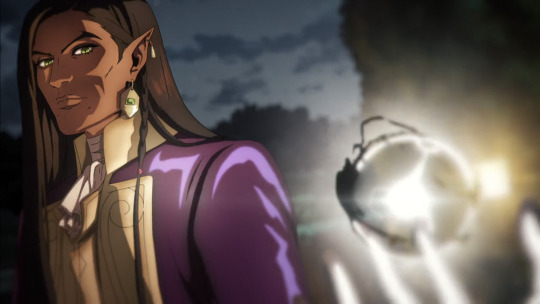
So I wanna talk about The Golden Legend of Saint George and The Dragon, which is one of the most famous of these stories.
Story goes: There's a dragon who's been terrorizing a nearby village. The people start offering the dragon livestock to appease it, and when they run out of livestock, they start holding a regular lotteries to sacrifice one unlucky person to the dragon.
St George shows up before the next person (king's daughter) is about to be eaten, and he doesn't kill the dragon, no. He dominates it:
S. George was upon his horse, and drew out his sword and garnished him with the sign of the cross, and rode hardily against the dragon which came towards him, and smote him with his spear and hurt him sore and threw him to the ground. And after said to the maid: Deliver to me your girdle, and bind it about the neck of the dragon and be not afeard. When she had done so the dragon followed her as it had been a meek beast and debonair.
*(debonair in the archaic sense = gentle)
Erzsebet makes it clear that if she can't be worshipped, being feared is the next best thing. She can't get Olrox to ally with her willingly, so she resorts to force. In the end, she's getting what she really wants: obedience and subservience. For him to follow her like a meek beast.

The Golden Legend doesn't stop there though:
Then she led [the dragon] into the city, and the people fled by mountains and valleys, and said: Alas! alas! we shall be all dead. Then S. George said to them: Ne doubt ye no thing, without more, believe ye in God, Jesu Christ, and do ye to be baptized and I shall slay the dragon. Then the king was baptized and all his people, and S. George slew the dragon and smote off his head, and commanded that he should be thrown in the fields, and they took four carts with oxen that drew him out of the city.
A couple things here that slot right into the themes of colonialism in the show:
The dragon is used used as a way to coerce people into converting to Christianity. Just as Olrox would have watched the Spanish settlers do to his people: under threat of force.
The dragon is feared by the villagers despite no longer being an actual threat, but St George does nothing to dispel those fears—he exploits them. Just as prejudices of all kinds are used to justify settler colonialism as necessary or inevitable.
The dragon is slain and discarded once St George is done with it. Just as Olrox would have watched the Americans betray and displace the Mohican people who allied with them during the revolution.
Erzsebet and Drolta calling Olrox a "Dragon" isn't just ignorant or disrespectful because he's not a dragon. It's downright degrading. They're not just refusing to address him properly—they're telling a man who has survived settler colonization twice over that they intend to use him as a tool with which to do it again.
Olrox spends the season carefully stepping around every appeal Drolta makes for him to pledge loyalty to Erzsebet. And he's damned good at it: never giving up his true intentions by saying no outright, but wiggling out of ever having to say yes by instead asking pointed questions and making cutting observations that always land the ball back in their side of the court.
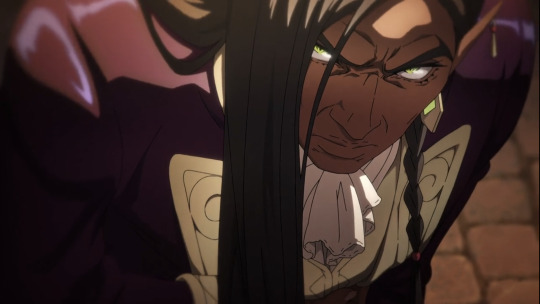
But then this scene happens, and he can't wiggle out of it this time. They've got their dragon where they want him. He's pinned and 'meek'—and I can think of nothing more infuriating and degrading for a character like Olrox than to be paraded about in his own land to help Erzsebet build her empire across it.
Olrox isn't a dragon, but she's going to make him one.
188 notes
·
View notes
Note
i got intrigued by the fact that you did a senior paper on the witches from madoka - can you please tell us some more about that? i love when academic work ties to personal interests.
I can do you one better. You can just read it. Screenshots as it’s from a website. This is the actual final. I can’t include my analysis portion in an image because there’s a ten image limit on mobile. So it’s under the cut. And please be gentle, because I wrote this when I was 18.
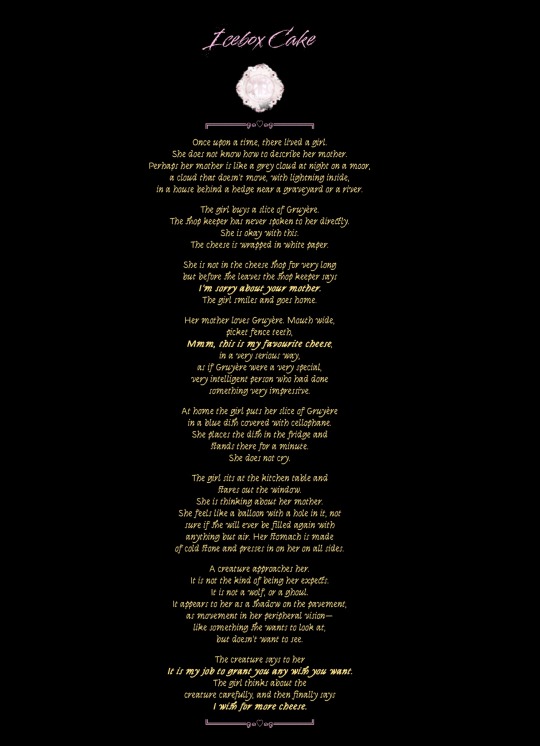

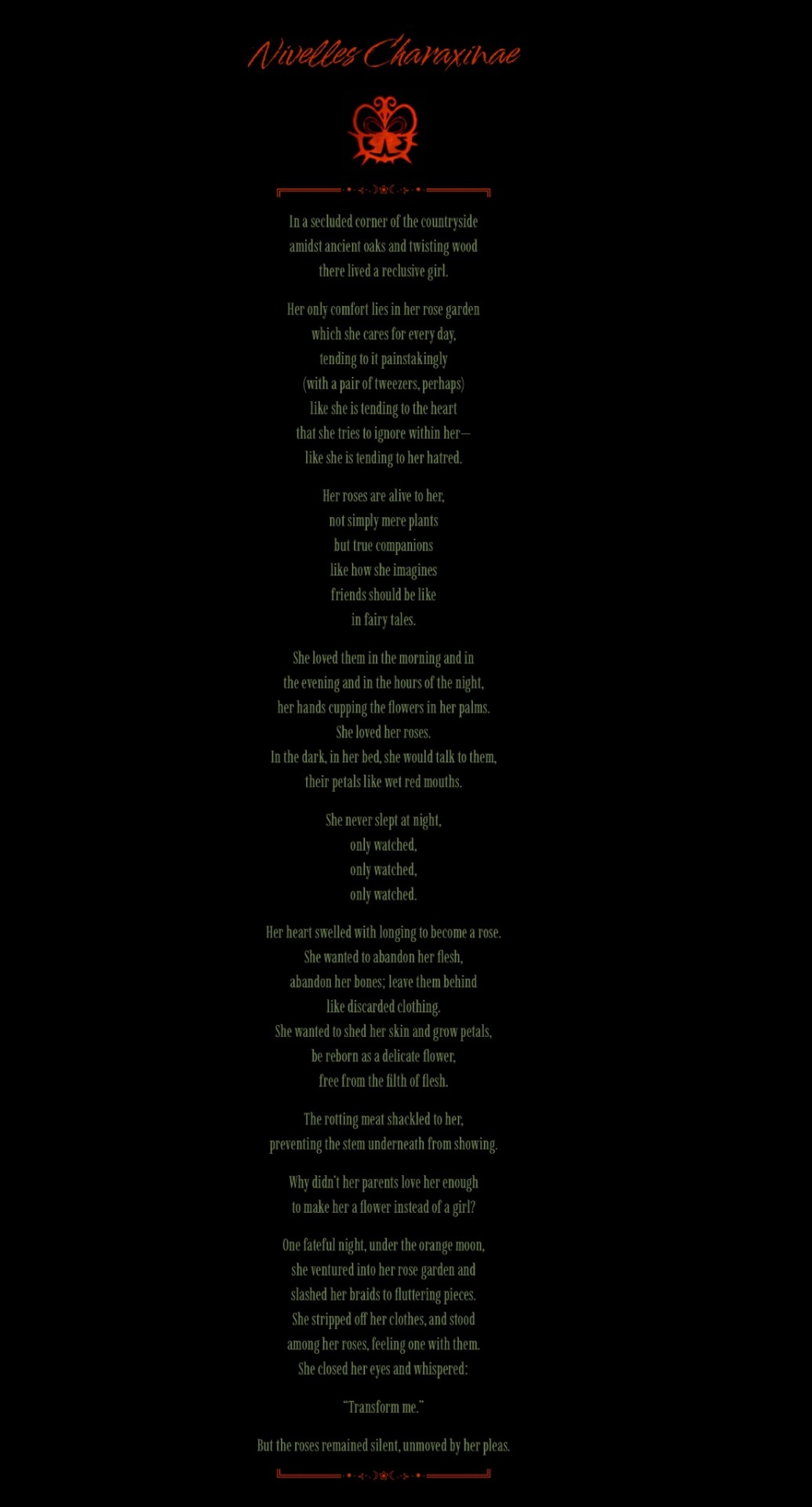
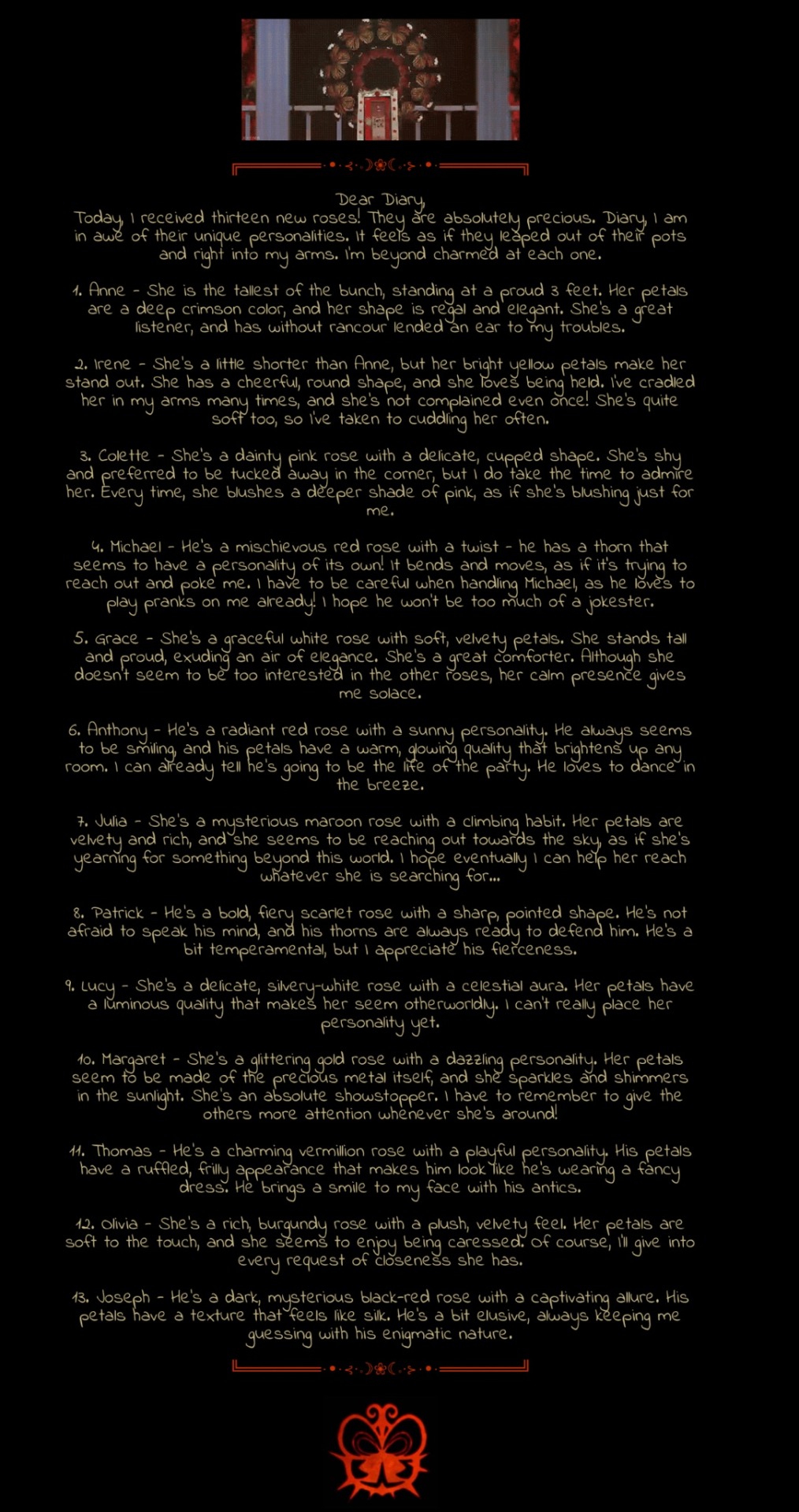
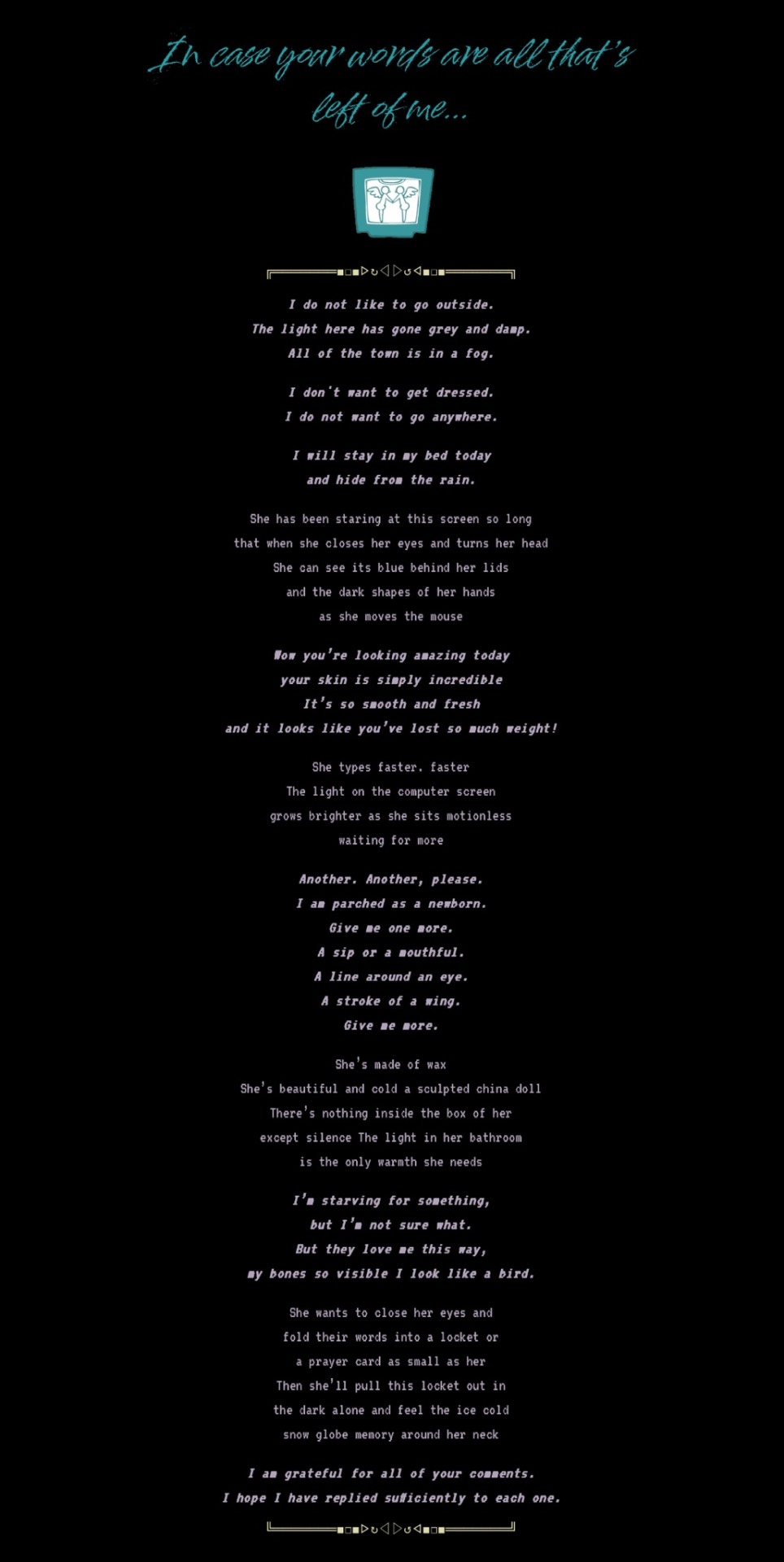
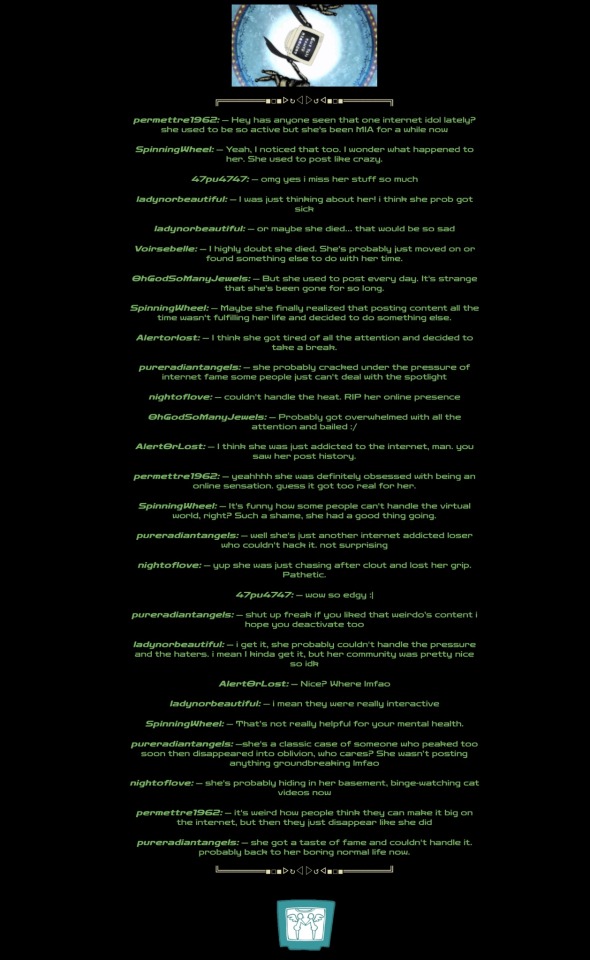
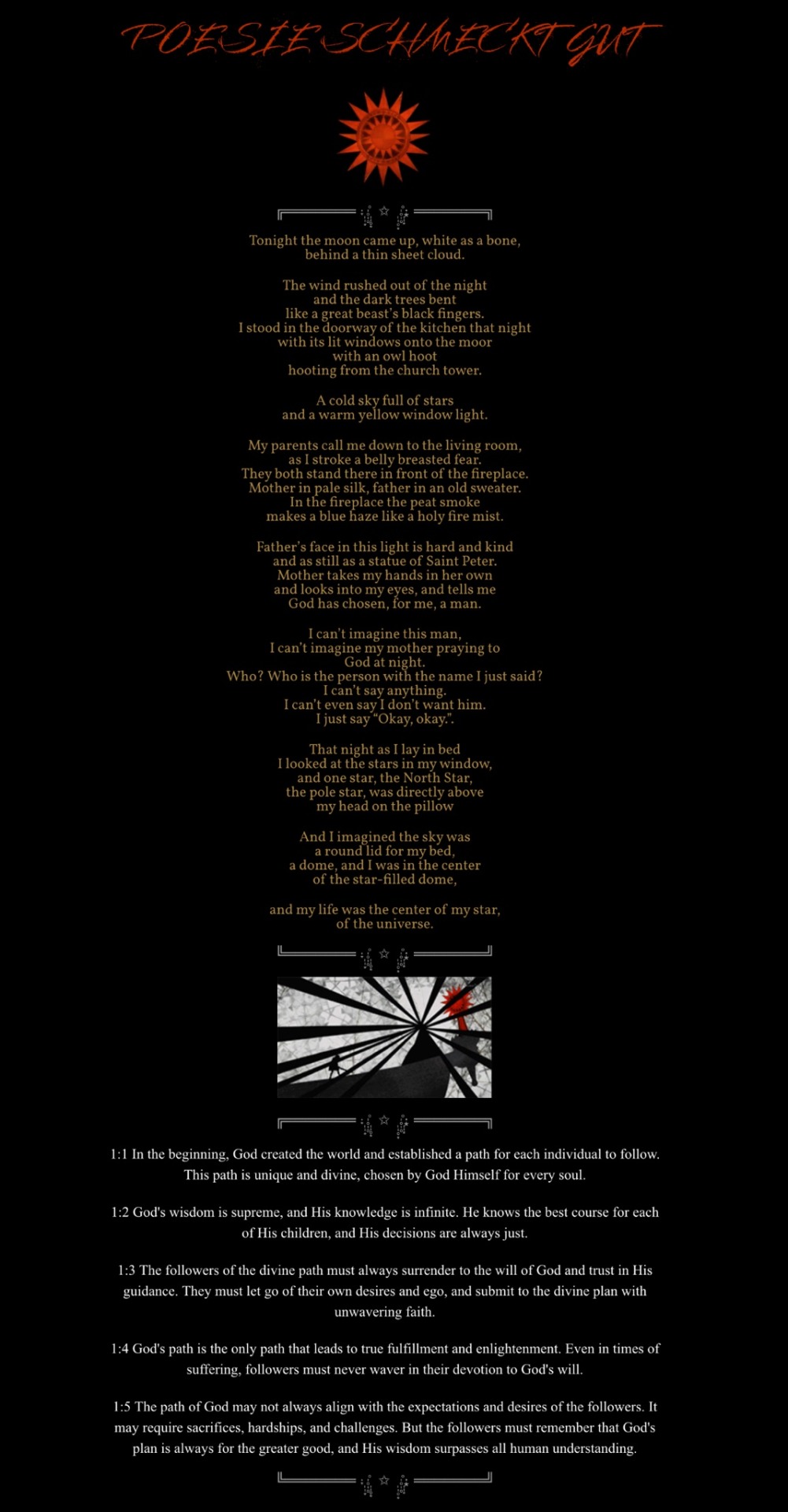
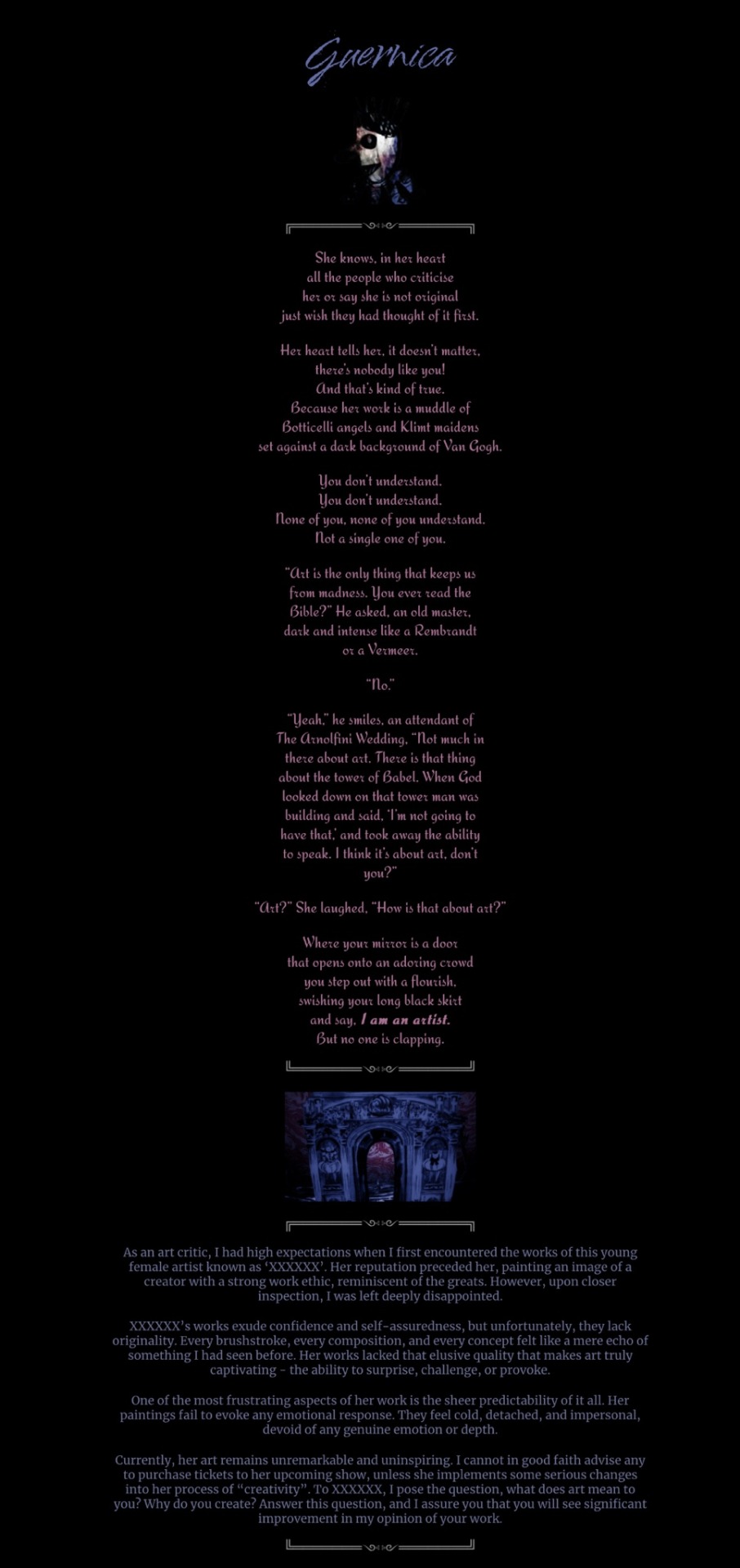
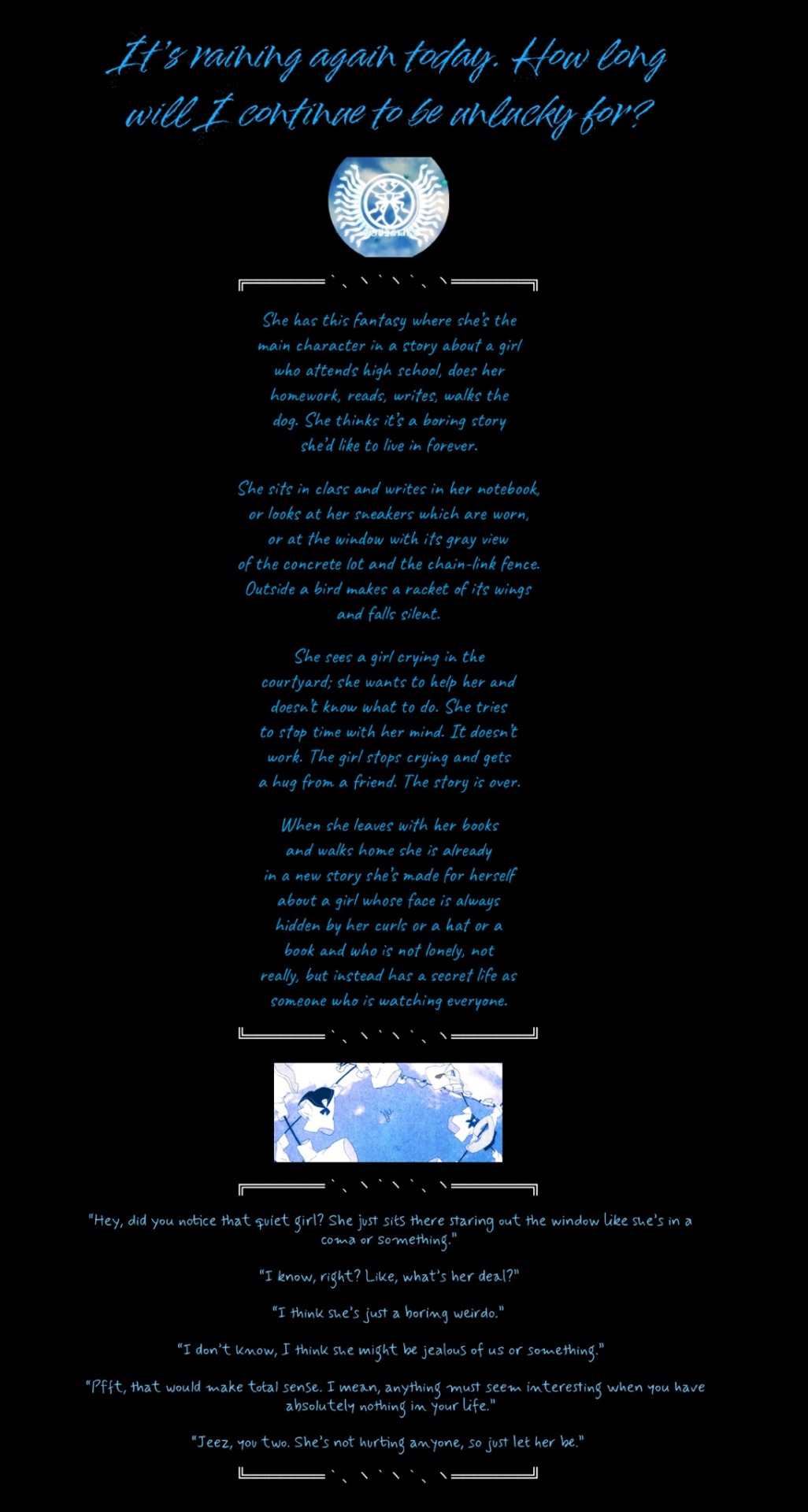
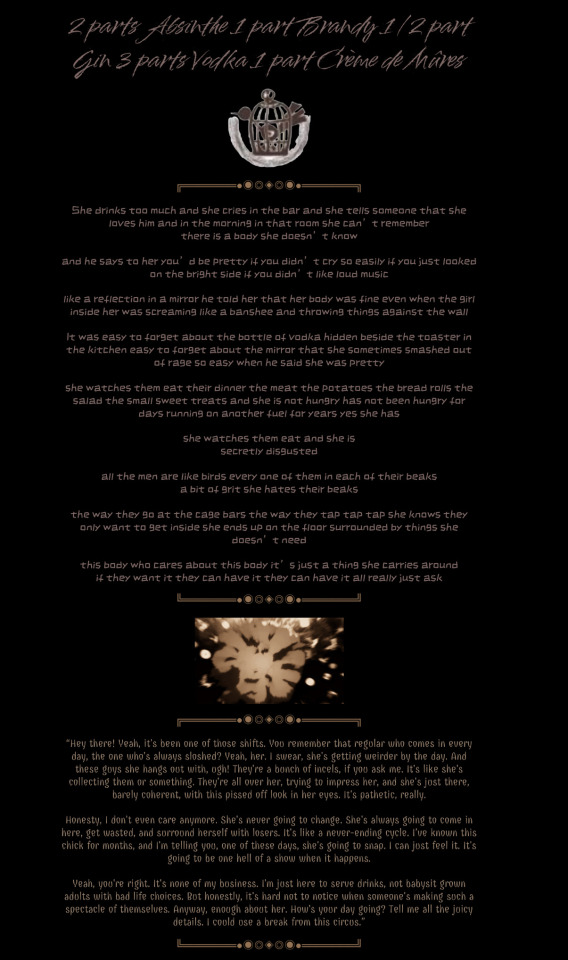
Icebox Cake
Icebox Cake is the alternate name for the pastry Charlotte. This is of course a reference to the witch Charlotte, who the poem is about. This story is a direct adaptation of Charlotte’s canon backstory as revealed in the Magia Record Game. Charlotte is the only witch in this collection with a concrete backstory, and the only one who we know the real name of — Nagisa Momoe.
Nivelles Charaxinae
Nivelles Charaxinae is a reference to both this witch’s namesake and her design. The witch this story is about is Gertrud, named after the saint of gardens, Gertrud of Nivelles. Charaxinae is a reference to the type of butterfly that is in Gertrud’s witch form. The names of her roses in her diary entries are names of saints. I wanted to give her roses human names to show they are the true ‘humans’ to her, but also maintain a degree of disconnect. I think like Gertrud’s namesake, saints are the least human human you can be.
In case your words are all that’s left of me…
In case your words are all that’s left of me… is the only poem with a completely made up title. Though I want the ending of what happened to HN Elly, the witch of this story, to be up to reader interpretation, her feelings of having no real presence besides her online one was something I wanted to make very clear, so that’s why I chose this title.
The usernames are all references to songs sung by Marguerite in Faust. Faust is a work with immense impact on Madoka, having numerous references both visually and story wise. Most notably, quotes from it are littered in every witch labyrinth. Keeping with the theme of this poem being the odd one out name wise, HN Elly actually has another name— Kirsten. This is after Dorothy Kirsten, who famously portrayed Marguerite, which is why I paid tribute to her role.
POESIE SCHMECKT GUT
I based most of my references off the real life women the witches are named after. It shows most in POESIE SCHMECKT GUT. The namesake of this story’s witch, Elsa Maria, is Elsa Asenijeff. POESIE SCHMECKT GUT was a publishing firm for one of Elsa’s books. The base storyline is based off of Elsa’s unhappy arranged marriage, and the religious and star theme was already there in Elsa Maria’s labyrinth.
Guernica
This poem is all about visual art from the point of view of a girl who doesn’t really understand it, so I was a perfect person to write this. All the references were surface level, sort of awkwardly shoved in ones to famous pieces and artists. The title is reference to one of Piccaso’s most famous pieces, an extremely meaningful and striking abstract about war. For this witch, who is named Izabel, who does nothing but copy others, I couldn’t think of anything better to name her story, because I knew she herself could never find value in Guernica.
It’s raining again today. How long will I continue to be unlucky for?
There’s not a lot to say about this one, but I think the witch that it’s about, Patricia, would like that. The story is pretty self explanatory, but it’s one of my favorites because of that. The title is reference to a line in her labyrinth.
2 parts Absinthe 1 part Brandy 1/2 part Gin 3 parts Vodka 1 part Crème de Mûres
This witch, Roberta, is pretty special. First off, she’s an adult witch, the only in the series. She’s said to be fond of alcohol, which I tried to portray in the lack of grammar and punctuation, like you’re listening to the incoherent thought stream of the intoxicated. The title is the ingredients to her namesake, the Aunt Roberta cocktail, which is the strongest drink in the world.
Source Title: Puella Magi Madoka Magica
Source Creators: Atsuhiro Shinbo & Gen Urobuchi & Shaft Productions
Year Published/Produced: 2011
Setting: The series mainly takes place in the fictional city of Mikakihara Japan, 2011. The rest of the series takes places in the otherworldly “Labyrinths”, dark mental landscapes based on the inner feelings of the witch they belong to.
Plot Summary: The series follows a middle school girl named Madoka Kaname, who is approached by a creature named Kyuubey to grant her any wish in exchange for becoming a “magical girl” and fighting against witches— supernatural creatures that kill humans. Eventually, it is revealed witches are fallen magical girls who fall into despair and that Kyuubey purposefully creates this magical girl to witch cycle to feed off their sadness, as his species uses said emotion like energy to fight otherworldly creatures far away, to prevent the destruction of the universe.
In the end, Madoka becomes a magical girl to wish for all magical girls to get happy endings— which erases witches from existence, including herself, as all Magical Girls eventually become witches. This creates a paradox through which no one remembers her anymore, except one person, the girl who had wished for her not to live a normal life more than anyone.
Key Character Descriptions
Charlotte— The witch of sweets, it is her nature to be tenacious. Charlotte used to be a ten year old girl named Momoe, who became a witch after falling in despair at the death of her mother.
H.N. Elly— The box witch, it is her nature to be covetous. Her labrynth and cards all imply that she was an internet addicted shut-in turned internet-famous idol, who cracked under the pressure of constant performance.
Elsa Maria— The shadow witch, it is her nature to be self-righteous. Due to her religious imagery, many theorize she was driven to despair after finding out the witches she slayed as a magical girl used to be fellow humans. However, I based my story on her on the life of her namesake, Elsa Asenijeff.
Gertrud— The rose garden witch, it is her nature to be distrustful. Nothing is known about her backstory, so I constructed my adaptation for her based on the info we do know about her, such as the fact that “she holds roses dearer than anything else” and that, “she loathes the thought of humans trampling her labyrinth”.
Patricia— The class representative witch, it is her nature to be an onlooker. It has been said she used to be a normal, serious girl who was overlooked by her classmates. In the show, her wish is for her school life routine to go on forever, which is what I based my adaptation for her on.
Izabel— The artist witch, it is her nature to be vain. In her prior life, she was an artist suffering from a creative block who yearned for others to notice her. It is said that every art piece she produced was something “that you have probably seen somewhere before”.
Roberta— The birdcage witch, it is her nature to rage. Before she became a witch, she was a party girl living a life of surface level relationships, specifically with men, but secretly, she was disgusted by all of them. Her wish was for friends who wouldn’t dislike her.
Cultural Themes
The fear of being alone is a major theme in Madoka Magica, as depicted through the struggles of various characters. Sayaka Miki's desire to win the affections of her crush, Kyousuke, despite his lack of care for her efforts, highlights her fear of being unloved. She becomes obsessed with trying to gain his love, ultimately leading to her downfall.
In a more subtle way, Mami Tomoe's yearning for companionship also highlights the theme of fear of being alone. Despite her cheerful and big sister-like front, Mami is revealed to be deeply lonely and craves companionship. She reaches out to other magical girls in an attempt to alleviate her loneliness, but her efforts are paid in dust.
And of course, the biggest example of this is Homura Akemi's refusal to let Madoka die. Homura goes to great lengths to protect Madoka, trapping herself in a time loop to prevent Madoka from becoming a victim of the magical girl system. Her actions are driven by her fear of losing Madoka and being left alone in a world without her, to the point where she would even let the universe itself be destroyed to save her love.
Through these characters, the series explores the visceral human need for connection, and the disastrous consequences that arise from the lengths we will go to to obtain it.
The central message I want to explore in my adaptation is the prior lives of monsters. Through these stories of monsters before they "became" monsters, I want to delve into the idea of how the creatures of Madoka Magica, framed as so inhumane the literal art style changes for them, used to lead extremely human, flawed lives before the show portrayed them. Using a simple, fairytale-like style of writing and multiple types of writing, like receipts, reviews, and diary entries, I want to portray the mundaneness of their lives, and just how involved in the world they were. That they were real little girls, with real lives that impacted the things around them.
Motifs
The most common motif in Madoka Magica is fairytale motifs, specifically Eastern European fairytales. Witches, little girls tempted by strange creatures, candy houses. One character, Sayaka Miki, even has her entire story based on the little mermaid. She loves a boy, he doesn’t love her, she sacrifices everything for him anyways and then turns into a huge, mermaid monster. I aim to invoke this through my style of writing, taking a simple yet whimsical approach.
Why Madoka?
I like almost everything about this anime. The characters, the love they have for one another, the Czech fairytale-like art style, and that despite the dark themes, the story never supports falling into the darkness yourself. One thing I dislike is that the short 12 episode length, while making the series very “complete” also serves to stunt the potential of a majority of the characters. As the series relies on the connections these characters have, it would have benefited very extremely from a longer run-time to show us the chemistry between the girls and their loved ones, as the lack of screen time can make these deep bonds seem rushed and superficial. I want to try to convey the importance of those deep bonds in my work, but like I said, it’s a matter of time, not passion, so my adaptation can’t fix this issue.
Adding sequels and prequels has, in my opinion, sullied the impact of the original work. Madoka Magica is an intensely popular brand, and thus, is extremely profitable. Making spin-offs for the short series seems obvious from a business point of view. But a majority of these spin-offs are just made simply from this business point of view, and nothing else. One example of this is the most popular spin-off series for Madoka, "Magia Record," which takes place in the same universe with a new, expansive cast of characters. The show feels like a cheap imitation of the original series. Instead of trying to explore new interesting themes or go into depth on the topics brought up in Madoka, it’s just trying to recapture what made it so special without truly understanding why it was so special in the first place.
One of the primary cultural fears explored in Madoka Magica is the fear of death, specifically the death of the ones you love. At the end of the series, it is revealed that Madoka’s aloof best friend, Homura, is actually in love with her and has been stuck in a time loop trying to prevent Madoka’s death, which proves unavoidable. The finale deals with Homura stopping the time loop and accepting her crush’s death, and that the world will move on without her, and so should she. The series tells us death is natural, it happens to all of us, and we cannot stop it. But we can honor the ones we loved and lost and step into the future as they would want.
64 notes
·
View notes
Text
It's been days since I was screaming about this on discord but - accurate historicity aside - there's a fantastic symbolism associated with the end of Anglo Saxon England with their English Saints Edmund and Edward and their red flag with a white dragon (versus Wales' white flag with a red dragon ofc) being replaced, when the Normans and Plantagenets came, by a Saint and the flag of a man most famous for killing a dragon.
Also interesting that Welsh/Irish/Gaelic/Cornish words (Saeson/Sasanach/Sassenach/Sawsnek) for the English (language or people depending on context) derives from the word Saxon, where the word that the English use for themselves comes from the word Angle. Need to read more on why that distinction came to be. Saxons had more of a culture of raiding? Angles were more settlers???? Don't quote me on that.
#i dunno just like to imagine wee arthur like aaaahhh nooo ma dragon give it back#hetalia#hws england#historical hetalia#op#headcanon
26 notes
·
View notes
Text
Saint Just's speech of November 13 analyzed in a few words by the famous lawyer Jacques Vergès

Jacques Vergès ( 1925-2013)
In a YouTube video, the famous lawyer Jacques Vergès is interviewed on an Algerian TV show. Vergès is well-known in Algeria because he was the lawyer for many members of the FLN (National Liberation Front) and, above all, fervently supported the cause of the Algerian revolutionaries. He not only defended them but also married one of the most famous Algerian revolutionaries, Djamila Bouhired. At the time, defending FLN members during the Algerian War was a huge risk. Lawyers could be assassinated by extremists, like Pierre Popie, who was killed by the OAS (Secret Army Organization), or Maître Ould Aoudia, who was allegedly assassinated by the French secret services, as claimed by Raymond Muelle (this is also mentioned in the video, among other things).
Where it becomes especially interesting for those of us passionate about the French Revolution (or experts, considering some Tumblr users ^^) is when, at one point in the video, Jacques Vergès is shown two images: one of Saint-Just and another of Louis XVI (specifically at 1:28:12). Vergès explains that Saint-Just’s speech to the Convention on November 13, 1792, is, in his view, an "indictment of rupture" (this holds significant meaning for Vergès, who excelled in defenses of rupture, having achieved the remarkable feat of never having a client executed, particularly in the highly rigged trials of colonial justice during the Algerian Revolution). This is rare, as prosecutors (or at least those leading the accusation at the time) typically invoked the law. Vergès then elaborates (I’ll quote him directly from here on): "In the king's trial, some argue that it was impossible to try Louis XVI because the monarch had immunity tied to his functions, while others argue that the moment Louis XVI betrayed that immunity, it no longer applied."
Vergès concludes by referencing Saint-Just’s speech: "One day, people will be astonished that in the 18th century, we were less advanced than in Caesar's time—there, the tyrant was slain in the Senate itself, with no other formality than twenty-three dagger blows, and no other law than Rome's freedom."
The video continues a bit further on the topic of Saint-Just. Vergès finishes by saying that Saint-Just serves as a fantastic example for youth, ending with the revolutionary’s quote: "I despise this dust that makes me up and that speaks to you; they may persecute it and kill this dust! But I defy anyone to take from me this independent life I have created for myself in the ages and in the heavens."
What truly intrigued me was the legal perspective of Vergès, a specialist in defenses of rupture, on Saint-Just’s speech—particularly the concept of the "indictment of rupture."
Here is the link to the video (but it is in French and there are no subtitles) as a reminder the part that interests us, that is to say the evocation of Saint-Just, is at 1:28:12
Here is the link to the video (but it's in French and there are no subtitles). Just as a reminder, the part that interests us—the mention of Saint-Just—is at 1:28:12: https://www.youtube.com/watch?v=pZsK9975YoA&ab_channel=allkhadra.
33 notes
·
View notes
Text
Hi readers of Unspooled Thread! Not sure how many of you this will reach but here's an update!
@velvetcovered-brick had been amazing basically as our PR person, answering comments, making posts, etc. Cause literally they're a saint.
But I wanted to also give an update on writing the latest chapter.
First, I am SO SORRY it's late. You know how a story won't update for a hot sec and then the author posts and is like "I'm so sorry, my cat died, a zombie apocalypse took place, and also I suffered a bout of malaria?"
Yeah, that's basically what happened. Quite literally, first, there were so family problems that happened, as soon as those cleared up my spouse and I left on a family trip for his nonno's 90th birthday. We were traveling too much so I didn't bring my laptop and I'm not as good as typing on my phone as I used to be. THEN I literally got sick the day we travelled back and have been recovering. I still can't fully hear out of my right ear. Woot.
There were various other things, but those are the main points. Meaning writing this chapter took WAY longer than usual.
However, I HAVE GOOD NEWS. I'm at the end of the chapter, writing the very famous Featherington Ball at the end of s2 and all that transpires. Some events shall change slightly, some dramatically, and some... well, you'll have to read to find out. ;)
I should be done today or tomorrow, but then we have to do edits. But I promise this means it's coming soon.
Now, I feel like there will be some questions when this chapter comes out, specifically with our beautiful Penedict and the progress of their relationship. Since it's a canon rewrite, @velvetcovered-brick and I very seriously look at each season and where characters are, and how they change and develop differently based on the new situations we have put them in.
You'll notice Benedict matured faster than in the show timeline. What I mean by "mature" is that he became ready for love much more quickly than in the show. In s1-3, Benedict is not ready to settle down. We believe he cares deeply about his sexual partners but that is not the same as enduring love. To fast-track him to that point but in a believable manner, we hypothesized that making him take on the responsibility of caring for another person, another woman, besides his sisters closely and deeply would help with this.
For Penelope, being so much younger, this was different. Even if she fell in love with Benedict earlier, we did not believe she would or should act any earlier than s3. We based this heavily on Nicola's observation that in s1, Penelope is a girl. In s2, to quote the great Britney Spears, she's "not a girl, not yet a woman."
But s3, Penelope? She's a woman and ready to own it.
Sooooo, yeah. There's my ramble. As a treat, here's an unexplained, excerpt of dialogue from the latest chapter we are finishing up:
“Is there something even more binding than a swear, Ben?” “A blood oath, perhaps? A tithing?” “Very well, then. As your new patron saint–” “Hold on! Are you not getting a fullhead, Lady Whistledown?”
#bridgerton fanfiction#bridgerton#benelope#benedict bridgerton#unspooled thread#penedict#penelope featherington
26 notes
·
View notes
Text
Saint-Just – Robespierre relationship described by XIXth century (1st half) historians
If Vinot with his Pls do not misinterpret can be considered as ‘how it’s going’ than that’s ‘how it’s started’:
François Mignet “Histoire de la Revolution française”, 1824.
“Unlike Robespierre, he [Saint-Just] was a man of action. Robespierre, understanding how much benefit he could get from this man, attached him to himself the time soon after the Convention started its sessions. Saint-Just, for his part, was charmed by the reputation of incorruptibility Robespierre had, his austere life and the closeness of their beliefs."

They are not a mentor and a disciple, but equal colleagues, though a big friendship is not implied either. Saint-Just has little "screen time" in this book, but when he appears he acts either out of his own will (the accusation of Danton is fully his and Billiaud will and work) or out of his and Robespierre unanimity.
That is how he encourages robespierre before Thermidor:
"Saint-Just, who understood from their [CSP members] silence, from some words escaped, from embarrasment or enmity on their faces that there was no time to waste, urged Robespierre to act."


Thomas Carlyle "French Revolution: A History", 1837
Strangely, he didn't finde a place between his wordplay to say anything on our matter. And thanks god, because it would be ablolutely ahistorical, just look how he describes Saint-Just:

Alphonse de Lamartine "Histoire des Girondins", since 1847
"At that time Robespierre and young Saint-Just, one already famous, the other still unknown, lived in that familiar intimacy wich often unites a master and his disciple."

"It was him [Saint-Just] who, in endless conversations during the long nights under Duplay's roof, fought what he called weaknesses of Robespierre's soul and his disgust with shedding the king's blood."

"Robespierre was the only one man who Saint-Just worshiped as a suprime thought regulating the Republic."

Lamartine depicts Saint-Just always translating Robespierre's will in the Convention, but in privat he, from the very beginning, has his own mind and, closer to the end, begins to dominate.
(Now I feel that I have to notice that it's not me quoting only about Saint-Just, but Lamartine seeming to be uninterested in Robespierre in this matter. Anyway, this book has Saint-Just striping so it's still good.)
Louis Blanc "Histoire de la révolution française", since 1847
"He had a misterious attraction to Robespierre, an irresistible one that defeated him, that survived their fall and was preserved even on the eshafaud."

"Robespierre himself, already partly changed by the endless persecutions by Gironde, couldn't resist. And everyone noticed that his blood soured and altered in his veins when he put on the Deianira's shirt that was to him a friendship of Saint-Just."

Though the last quote presents Saint-Just in a bad light, the author is actually pro-Saint-Just. I was shocked when I went thorough my bookmarks and found out that this two quotes are the only one (except the one in wich the auther is extremelly disappointed by Robespierre finally followin Saint-Just in Danton Execution Question), since it was the book that made me believe in their outstanding friendship. And then I realised that it just depicts them here and there, colorefully and with details, agreeing and arguing, being good pleople, not being good peaople and so you conclude by yourself: there was a Feeling.
On this good note I cease.
#frev#french revolution#saint just#robespierre#no really saint-just striping is the best part of lamartine
15 notes
·
View notes
Note
hello, do you have any tips for getting more creative titles? Like going for a more poetic style without it being too much. I like for example, "These Violent Delights" and "Our Violent Ends" by Chloe Gong. They're simple, telling, and short - and I just think it's different (from "The" type titles, and the Blank of Blank and Blank format). I also think "The Folk of the Air" is simple yet creative. I feel like I don't know enough words to get the title. I appreciate any advice! Thank you.
Coming Up with Poetic Titles
Some of the most beautiful, poetic titles often stem from actual prose quotes, either from poetry, classic literature, song titles, public domain lyrics, plays, etc.
These Violent Delights and Our Violent Ends, for example, are actually derived from a quote from Shakespeare's Romeo & Juliet ("These violent delights have violent ends...") which is appropriate since the These Violent Delights duology is a Romeo & Juliet retelling. Other examples are The Lovely Bones by Alice Sebold (I knew a woman, lovely in her bones... “I Knew a Woman” by Theodore Roethke), The Fault in Our Stars by John Green (The fault, dear Brutus, is not in our stars/But in ourselves... Julius Caesar by William Shakespeare), Her Fearful Symmetry by Audrey Niffenegger (What immortal hand or eye/Could frame thy fearful symmetry? "The Tyger" by William Blake), Across the Universe by Beth Revis ("Across the Universe" by The Beatles), To All the Boys I've Loved Before by Jenny Han ("To All the Girls I've Loved Before" by Hal David and Albert Hammond, made famous by Willie Nelson and Julio Iglesias.)
Series titles, like The Folk of the Air series and A Song of Ice and Fire series are usually broad references to what the story is about. I haven't read The Folk of the Air, but I know it's about faeries, so I'm assuming that's a reference to the fae in that story. A Song of Ice and Fire is a reference to a prophecy and history book in the series, but the imagery also references many of the themes and events in the story.
So, whether you're titling a book or series, here are some places you can look for a title:
-- references to relevant source material, such as original fairy tale if you're doing a retelling (Ash by Malinda Lo)
-- references to relevant poems, song titles, lyrics, plays, music, classic literature (Catch a Falling Star by Kim Culbertson)
-- relevant quote, title, person, place, or event that appears in your story (The Hunger Games by Suzanne Collins, The Cruel Prince by Holly Black)
-- beautiful imagery that appears in your story (Under the Tuscan Sun by Frances Mayes)
-- who or what your story is about (The Book Thief by Marcus Zusak, The Martian by Andy Weir, All the Crooked Saints by Maggie Stiefvater)
My post Coming Up with a Book/Story Title has more tips!
•••••••••••••••••••••••••••••••••
I’ve been writing seriously for over 30 years and love to share what I’ve learned. Have a writing question? My inbox is always open!
Learn more about WQA
Visit my Master List of Top Posts
Go to ko-fi.com/wqa to buy me coffee or see my commissions
397 notes
·
View notes